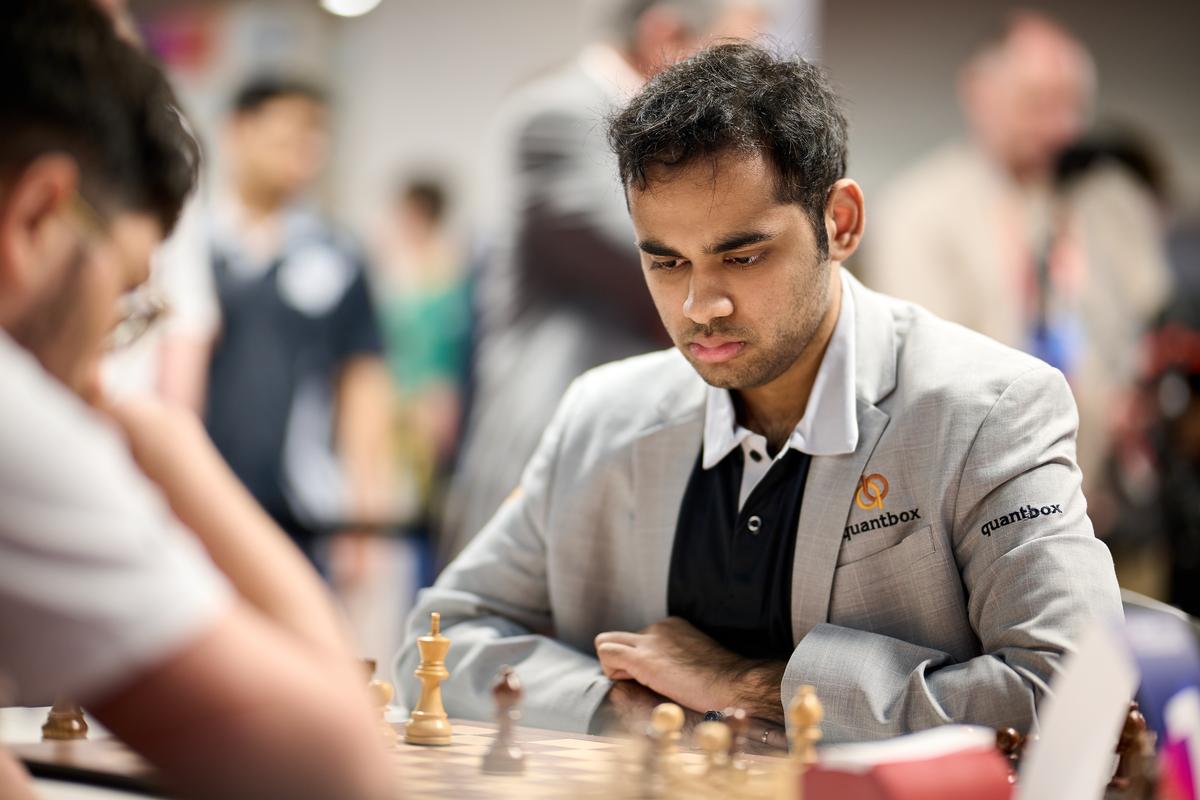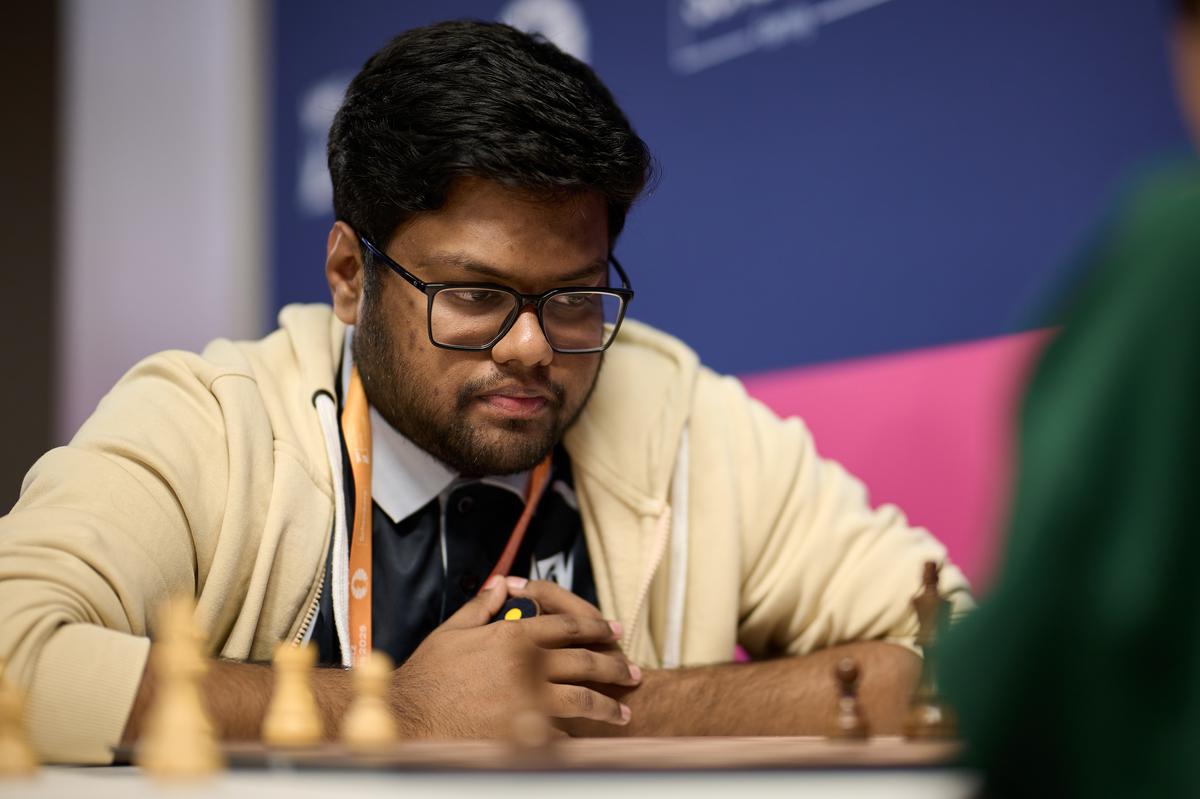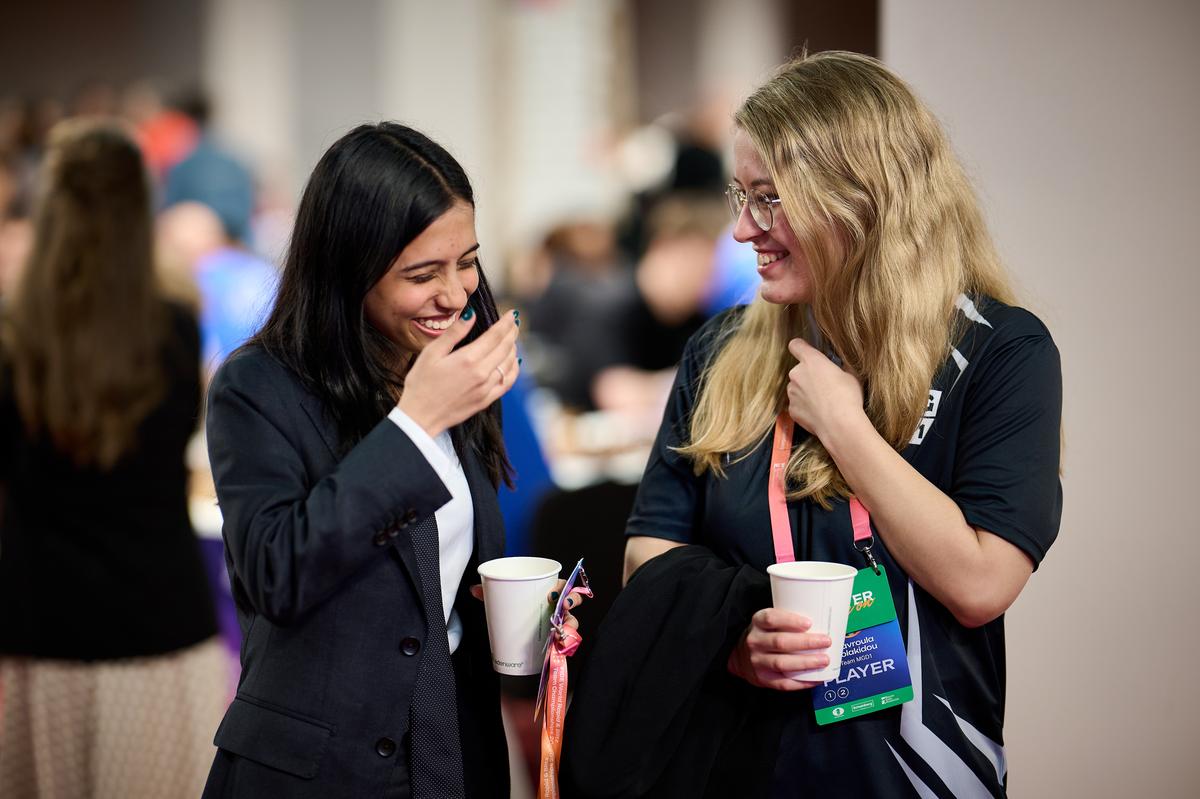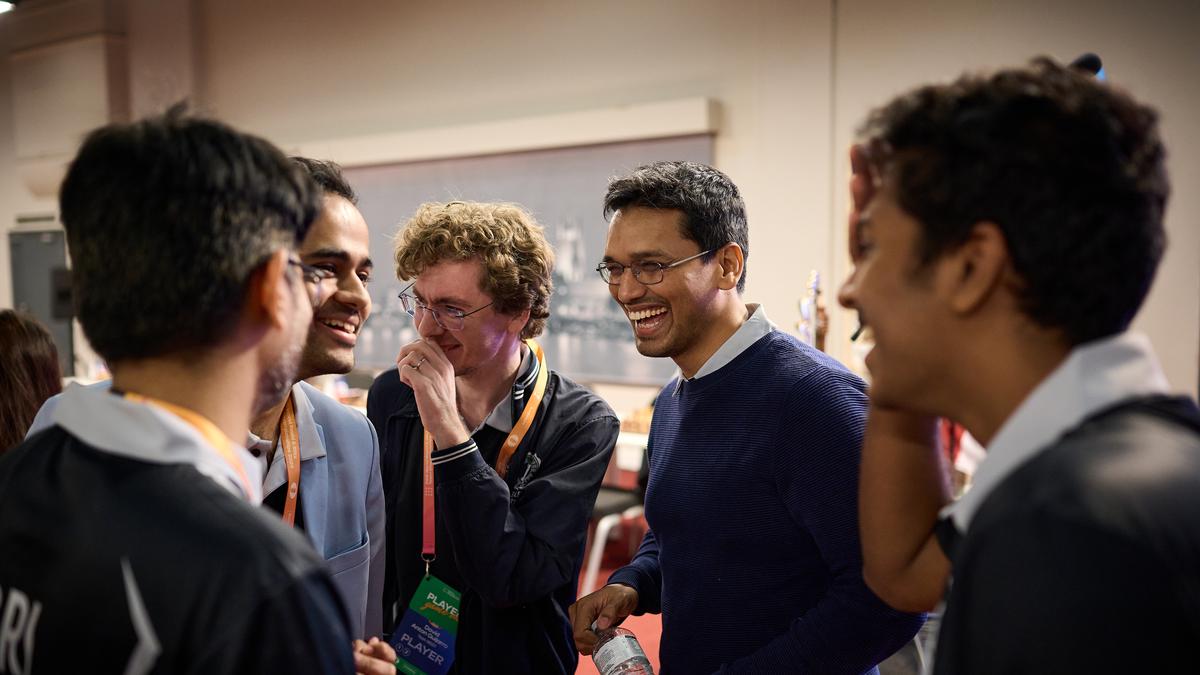At the Rapid & Blitz Championships, MGD1 proved team chess hits different
Chess may be one of the ultimate solo sports, but when played as a team game, everything changes. The loneliness is replaced by camaraderie, the pressure is shared, and every move is made with a common goal in mind.
At the 2025 World Rapid and Blitz Team Championships, Team MGD1 demonstrated how a team setup brings a different kind of vibe to chess tournaments.
Even though the participating teams featured players of multiple nationalities, MGD1 was, in many ways, quintessentially Indian. Of the nine players in total, seven were from the country — Arjun Erigaisi, Pentala Harikrishna, Atharva Tayade, Pranav Venkatesh, Leon Mendonca, Hariharan Raghavan, and non-playing captain Srinath Narayanan. The two overseas players were David Anton Guijarro from Spain and Stavroula Tsolakidou from Greece.
The team is the eponymous flagship of a Pune-based firm that scouts and manages chess talent from across the country. It has delivered several strong performances in recent years, finishing fourth in the 2023 Pro Chess League and securing bronze and silver in the Rapid and Blitz legs of the last two editions of the Team Championships.
Seeded sixth at the start of this year’s edition, the team finished with 21 points from 12 Rapid rounds to become the first Indian-sponsored side to win a title at the tournament.
The sheer scale of the event — more than 50 teams played Rapid and Blitz over the course of five days — would have been enough to rattle anyone’s nerves. But as with most teams, MGD1’s players drew strength and calm from one another, building strong chemistry in no time.

Making a point: “There’s a lot more excitement and fun in team events like this, especially with faster formats,” says Arjun Erigaisi.
| Photo Credit:
Rafal Oleksiewicz/FIDE
Making a point: “There’s a lot more excitement and fun in team events like this, especially with faster formats,” says Arjun Erigaisi.
| Photo Credit:
Rafal Oleksiewicz/FIDE
“I think most of us being Indians helped,” said Arjun. “Anton and Stavroula were also super friendly and nice. We tried to be in good spirits and have some fun together.”
According to Arjun, this was one of the factors that made the tournament particularly enjoyable and refreshing. “There’s a lot more excitement and fun in team events like this, especially with faster formats. Even if you lose, it’s still exciting and intense to watch your teammates fight on after your own game is over.”
“I had a really bad Day 2, but the team did a fantastic job of ensuring it didn’t affect the overall result. Some of our wins on the final day, including mine, were quite crucial.” A couple of them came in the final round against Malcolm’s Mates, with Arjun defeating English GM Luke McShane and Pranav beating Ivan Saric from Croatia.
“I played a risky opening, and it was a complicated position. But I calculated well in the end,” said Pranav, adding that Srinath’s presence was critical. “In important rounds, we were well supported by him. He told us to give our best and just enjoy the game.”

Superb show: Atharva Tayade, playing on the recreational board, stole the show with a sensational run of 11 straight wins.
| Photo Credit:
Rafal Oleksiewicz/FIDE
Superb show: Atharva Tayade, playing on the recreational board, stole the show with a sensational run of 11 straight wins.
| Photo Credit:
Rafal Oleksiewicz/FIDE
Having captained the team since the tournament’s inaugural edition, Srinath knows a thing or two about the Indian players, which made the task of assigning boards relatively straightforward.
“Having Arjun on Board 1 was an obvious choice as he was the strongest player we had,” said the captain. “Hari (Pentala), with his vast experience and incredibly solid game, rarely loses. He’s accustomed to playing on Board 2, so that was a natural fit. Anton, with his solidity and experience, slotted perfectly on the next one, from where he offered a lot of flexibility.”
For the lower boards — where the most decisive games occur — Srinath opted for the youthful aggression of Leon and Pranav.
But it was Atharva, playing on the recreational board, who stole the show with a sensational run of 11 straight wins. According to FIDE tournament rules, the ‘recreational player’ must be someone who has never achieved an ELO rating of over 2000 in any format, the aim of which is to promote grassroots talent on the world stage.
Arjun and MGD1’s founders, Sreekar Channapragada and Manu Gurtu, agreed that the youngster’s performance was the high point of the team’s campaign. “He had an incredible score and we couldn’t have won it without his brilliant performance,” said Arjun.
Sreekar went further: “Being a good player and living up to that reputation are two different things. His temperament shows he’s going to do well in life.”
Atharva, meanwhile, found the team setting both enjoyable and enriching. He said, “The environment was quite chill and light-hearted. I found it fascinating to learn about their lives and daily routines as chess players. It also made me realise the importance of fitness in the sport and that I’d be better off focusing more on it.”
This title may be MGD1’s biggest moment yet, but for Indian players, flourishing in such events is standard practice. In recent years, they’ve repeatedly shown that they can thrive just as successfully in team formats as they do in individual ones.

Off the board: Divya Deshmukh of the Hexamind team shares a light moment with MGD1’s Stavroula Tsolakidou during the tournament.
| Photo Credit:
Rafal Oleksiewicz/FIDE
Off the board: Divya Deshmukh of the Hexamind team shares a light moment with MGD1’s Stavroula Tsolakidou during the tournament.
| Photo Credit:
Rafal Oleksiewicz/FIDE
“Indian chess players are usually very motivated and work well together in team events,” said Srinath. “Maybe the identity of being Indians gives them a strong sense of unity.” This was evident in 2024, when the national team clinched historic gold medals in both the Open and Women’s events at the Chess Olympiad — building on a strong showing the previous year, when both squads had secured silver at the Asian Games in Hangzhou.
Meanwhile, on the individual front, besides Divya Deshmukh’s World Cup win, Gukesh’s World Championship triumph over Ding Liren last year stands out as an epochal moment. Praggnanandhaa, too, recently won titles at the Grand Chess Tour Superbet Classic in Romania and the UzChess Cup in Tashkent.
While these achievements bode well for Indian chess, Sreekar points out that the sport still appeals to a niche audience. This is where, according to him, the Team Championships can make a difference.
“There’s greater interdependence, which makes the game more human. That, in turn, makes it more exciting and accessible to a wider audience,” he said.



